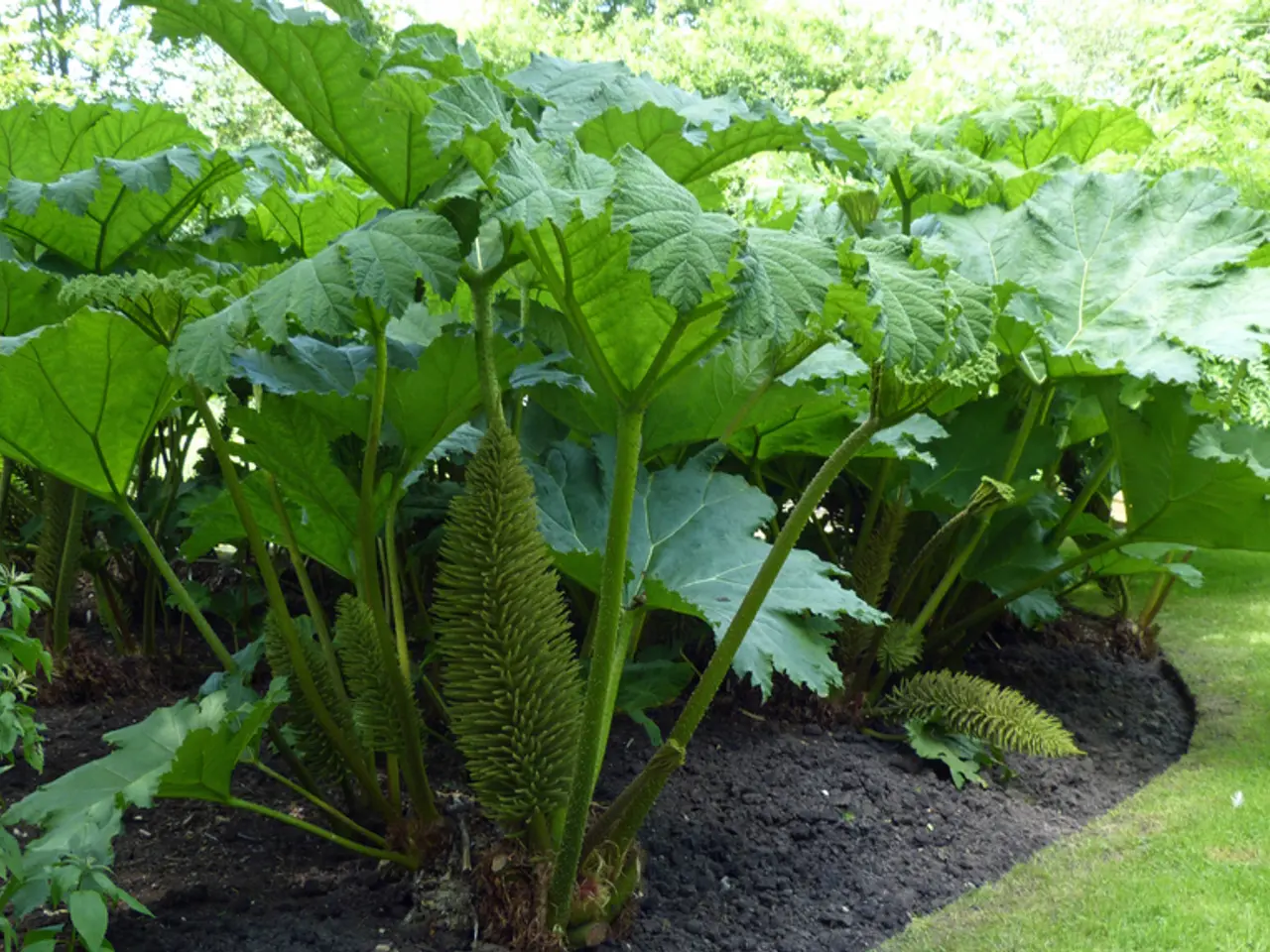Nature's Intricate Relationship: The Triad of Plants, Soil, and Decomposers
In the intricate web of life, decomposers play a crucial and often overlooked role in maintaining the balance and productivity of ecosystems. These organisms, including bacteria, fungi, worms, and insects, break down dead organic matter, transforming it into simpler molecules that are essential for plant growth and soil health.
Decomposers are the unsung heroes of the nutrient cycle, primarily consisting of bacteria and fungi that break down dead leaves, fallen animals, and plant debris into their basic components. As they decompose this material, they release essential nutrients such as carbon, nitrogen, phosphorus, calcium, and potassium back into the soil, making them available for uptake by plants [2][4].
This process is mutually beneficial for plants and soil. Plants rely on these nutrients for growth and development, while the soil benefits from the recycling of organic matter. Decomposers also help maintain the balance of carbon in ecosystems by converting organic matter into carbon dioxide, which is essential for regulating climate and supporting photosynthesis in plants [1].
The rate of decomposition varies depending on factors such as the carbon-to-nitrogen ratio, temperature, pH, and the amount of water. Fungi and bacteria have different preferences for carbon-to-nitrogen ratios, ensuring a wide range of organic materials can be broken down [5]. The complexity of the molecule to be broken down also affects the rate of decomposition, with more complex polymers requiring specific microorganisms or soil animals for their breakdown.
Decomposers contribute to improved soil structure by creating spaces for air and water flow, benefiting plant growth. They also release nutrients that are absorbed by the roots of plants, contributing to the cycling of nutrients in the soil. The breakdown of complex organic materials by decomposers helps improve soil structure, further benefiting plant growth.
Without decomposers, dead organic matter would accumulate, and vital nutrients would remain locked up, disrupting the food web and overall ecosystem productivity. Thus, decomposers ensure that energy and materials are recycled efficiently, supporting the health and sustainability of both plant and soil systems [4][5].
In conclusion, the symbiotic relationship between plants and decomposers is essential for the survival of all living organisms in ecological systems. Decomposition is one of the most important services performed by soil organisms, essential for the cycling of nutrients in the soil. By understanding and appreciating the role of decomposers, we can better understand and protect the delicate balance of our ecosystems.
- In the realm of environmental science, the pivotal role of decomposers in breaking down organic matter in home-and-garden settings, such as fallen leaves and garden debris, aids in maintaining nutrient availability and enhancing soil health for optimal gardening.
- Furthermore, decomposers like bacteria and fungi, found in the environmental-science domain, play a significant part in improving the lifestyle aspect of gardening by supporting plant growth through nutrient recycling and fostering a more sustainable gardening experience.





